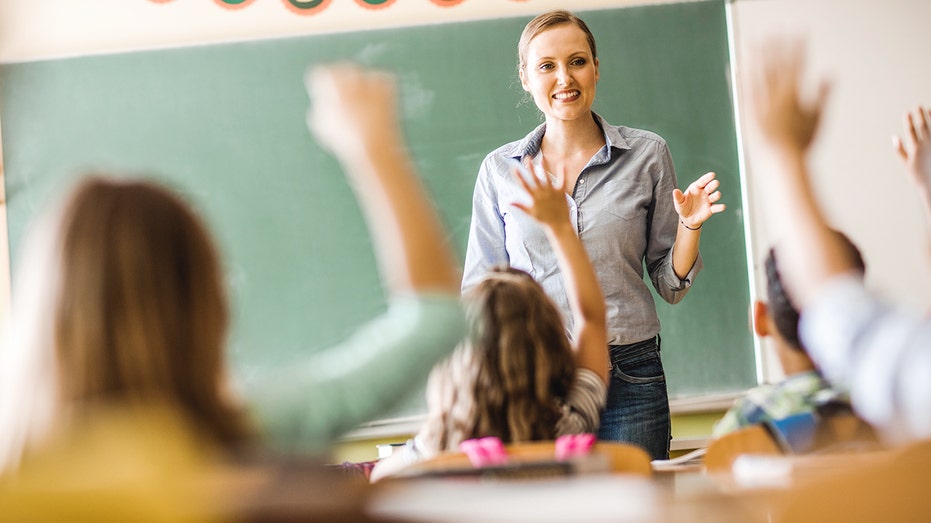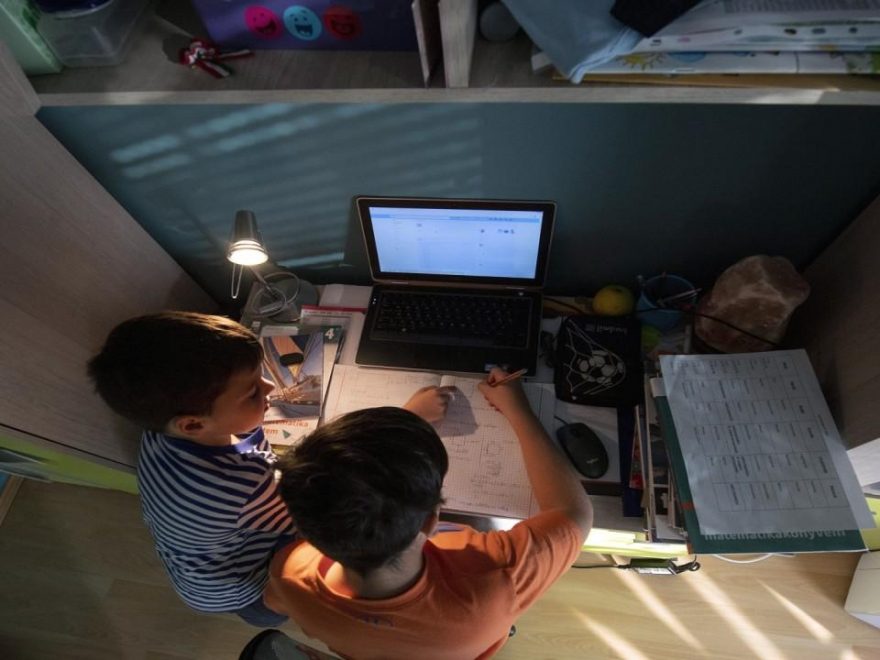Tech ‘supplements’ teaching, learning through coronavirus: American Federation of Teachers President
American Federation of Teachers President Randi Weingarten discusses how educators are shifting learning methods during the coronavirus outbreak.
Get all the latest news on coronavirus and more delivered daily to your inbox. Sign up here.
Continue Reading Below
This week is Teacher Appreciation Week, but because of the coronavirus, the celebrations will look very different.
There won’t be any classroom door decorations or cookies passed around the hallways by the PTA. Instead, the school buildings will be empty and locked with the lights off.
But just because teachers have been at home for the last several weeks — in some cases months — that doesn’t mean they haven’t been working harder than ever before.
“One of the biggest things that people need to be reminded of is how hard teachers are working at getting this right,” Drew X. Coles, a professor at Columbia University’s Teachers College, told FOX Business. “They're trying as hard as they possibly can and working as hard as they possibly can to catch up on a skill that they haven't had to utilize in this way ever before.”
HOW MUCH DO TEACHERS EARN IN THE US?
In order to slow the spread of the coronavirus, many states issued stay-at-home orders and encouraged practicing social distancing — which meant that in a very short period of time, schools started remote learning. Teachers had to quickly figure out how to use technology to teach their students from their homes instead of in a classroom.
“Overnight, these folks who were absolute experts on how to deliver something in a very traditional classroom had to get very creative,” Lily Eskelsen García, the president of the National Education Association, told FOX Business.
Colin Sharkey, the executive director of the Association of American Educators (AAE), said that at first, teachers in the AAE were overwhelmed by the number of emails and resources that were being sent to them, so the association sent a curated list of essential resources to its members.
Then teachers started asking for technology training.
“We really focused on trying to find easy, accessible trainings,” Sharkey told FOX Business. “And when we failed to find good enough ones, we just put on our own.”
“We actually had to keep increasing the size of … the virtual space to accommodate this immediate need for training, because teachers kind of buckled down and said, all right, if I have to do this, I want to know how to use Zoom or Google Classroom or what have you,” Sharkey added.
CORONAVIRUS CREATES FRESH CHALLENGES FOR SPECIAL EDUCATION
Even though teachers have learned how to use technology for their classes, it remains a challenge because the technology is developing quickly, Coles explained.
“They're catching up on the technological end while also trying to readjust the syllabi and the curricula that they had already made,” Coles said. “So all of those things considered, they're working overtime in a way that can't even be described well enough.”
Martin Urbach, a high school music teacher in Manhattan, has tried to focus on technology that’s accessible to all his students — not just the students who have laptops or computers at home — by asking his students to make playlists on Spotify or create videos on the social media site TikTok.
Urbach said he’s also trying to assign projects that can transform music education into something that helps his students during such a stressful time “without asking kids to write a 500-page essay on a song.”
“I feel all kinds of emotions about it,” Urbach told FOX Business. “I feel like I am not able to do all the things that I love about music teaching.”
So instead, he said, he’s trying to focus on connecting with his students and “seeing how I can help them.”
GET FOX BUSINESS ON THE GO BY CLICKING HERE
Garcia said that at first, the teachers she spoke to in NEA were shocked by the sudden transition to remote learning and as time went on, they continued to experience a range of emotions, from frustration to fear for their students.
What’s helping them survive is solidarity with other teachers and the parents of their students, Garcia added.
In order to slow the spread of the coronavirus, school buildings across the country have been closed, forcing teachers to make the difficult switch to teaching remotely. (iStock) She explained that in normal circumstances, teachers often feel isolated in their classrooms, but they now have the ability to call their colleagues to ask questions or brainstorm solutions. “Ironically, that at this time of isolation, the importance of connection is right in front of us,” Garcia said. CLICK HERE TO READ MORE ON FOX BUSINESS Sharkey said he’s also seen a strong sense of resolve among teachers in the AAE. When the coronavirus hit, the association conducted a survey of 1,000 of its teachers across the country. One of the survey questions asked the teachers to agree or disagree with the statement: “I will get through this.” “Only five said no,” Sharkey said. “I don't know what other field has that level of ‘I can do this.’” “It feels understated just how well educators responded to what happened,” he added later. “We're hearing a lot of selflessness out of the challenges they're going through. It's not surprising, given the nature of the people that go into education.” Source: Read Full Article
